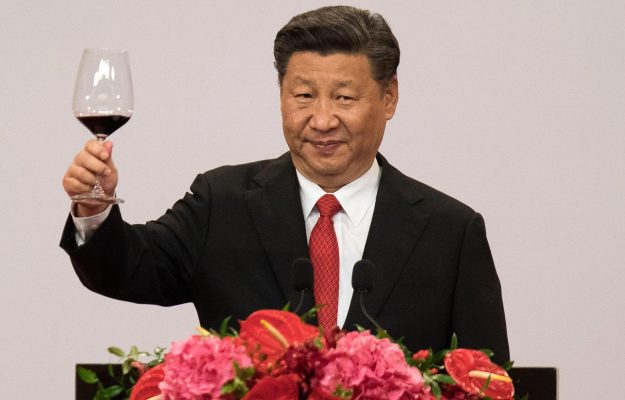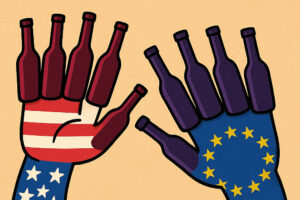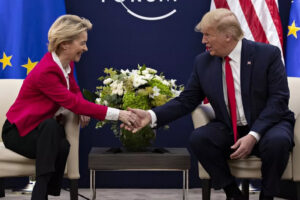The first country in the world to deal with Covid-19 was China. Which, at the same time, was also the first country to come out of the emergency. Here, too, obviously, the lockdown hit consumption, especially those linked to out-of-home consumption, starting with imported wine. A segment which, as emerged from the webinar “The New Normal”, an analysis of the Chinese market, the impact of Covid and the prospects for 2024, signed by Iwsr - International Wine & Spirits Research for Vinexposium (the joint venture created between the Bordeaux fair and Comexposium, which, in two days, raises the curtain on Vinexpo Shanghai 2020, in digital), has already resumed its run, expected to grow until 2024. Strong of a long-term trend that the pandemic has slowed down but not stopped. But also of very specific consumption drivers: e-commerce, young people reaching the legal drinking age and women. In short, opportunities that resist and are renewed even in changes and difficulties.
For imported wine, there are at least four reasons that bode well for the future on the Chinese market: global consumption is still very low, the wine’s ability to establish itself at the table, women's consumption is growing steadily and young people are gradually abandoning traditional spirits, such as baiju, for wine. There are obviously some considerations to be made, starting from the clear preference of the Chinese consumer for red wine: essentially a question of temperature, because in Chinese gastronomic culture cold drinks are not brought to the table. Speaking of the table: pairing with food, as Westerners understand it, is impossible, because in China dishes are shared and brought to the table at the same time, and then the challenge is different, and is to find a wine that goes well with many different dishes. Another aspect to be taken into account is the translation of the brand name, which does not lose its meaning and is appealing.
However, there are important obstacles that hinder economic growth and the market, not so much for wine as for consumption in general. The first is the economic slowdown, imposed by the pandemic, then there are the many, too many trade wars, the most ferocious of which is played right on the Washington-Beijing axis: hope is a change of course after the U.S. elections, and then a victory of Biden would definitely bode well. It has left its trail, even if years have passed, even the crackdown on the corruption of Party and Government leaders, which has also affected the fine wine trade. And then, there are the full warehouses, after years of purchases gone to accumulate. The crisis, together with an increasingly shared wine culture, has brought with it a new awareness of prices, which makes the Chinese consumer a more attentive consumer. Finally, the slowdown in out-of-home consumption, which is causing most of the consumption of wine.
And the Covid-19, what direct effect has it had on wine sales? In the meantime, it has given a great boost to e-commerce, a channel dominated essentially by two giants, Alibaba and JD, and which in any case follows a long-term trajectory: wine today is worth 40% of the spirits bought online in the Asia-Pacific area. Direct wine sales in China are virtually non-existent, and after the pandemic, consumers seem to have no intention of doing their weekly food shopping online. In addition to the digital and e-commerce boom, the impact of the Covid-19 has also been positive in terms of growth in ethical and healthy consumption, while curbing premiumization, and thus the propensity to spend more for a bottle, as well as, of course, social occasions, canceled for a period. After Covid-19, we will return to drinking together, with ethical consumption accelerating, and average prices, and therefore higher quality wines, will also rise again.
Compared to the drop in consumption of Huangjiu (the traditional Chinese “wine”), but also of Cognac and Champagne, the still wine in this 2020 has nevertheless held its own, despite a drop in alcohol, at the height of the recession, of -11.9%. To understand the specific weight of the pandemic, just think that during the financial crisis of 2008, alcohol consumption lost just 0.1%. What, however, does not change, and will hardly change, is a clear polarization between the large cities on the East Coast, where almost all wine consumption passes, and inland China, more reluctant to change. Another interesting aspect, which gives back the measure of the change taking place in China, is in the many “western” bars born in recent years, where wine has that frame that, culturally, is missing in traditional karaoke for example.
Changes, difficulties, but also opportunities, analyzed also by the managers of some of the most important brands of the Belpaese, heard by “Zhong can yi jiu”, the guide dedicated entirely to the combination of Chinese cuisine, traditional or contemporary, with Italian wines: Mazzei, Castello Banfi, Arnaldo Caprai, Montelvini, Masciarelli and more, which make the moment a complex but positive picture, because the Dragon, after the thud, seems ready to resume its race.
“China - comments Livio Mazzanti, area manager China of the Chianti Classico brand, Mazzei - is showing great economic solidity in my opinion, despite the great difficulties that this epidemic has brought, is showing signs of recovery, slow and cautious. In the short term I don’t expect a 100% recovery, not because of economic problems but because of behaviour of the average Chinese, who is cautious at the moment. He goes out less, travels less, consumes less outside the home. There are signs of recovery. I firmly believe that there will be a big increase in consumption within 6 months, especially during the Chinese New Year when, in my opinion, consumption will be higher than in recent years. Last year was not celebrated in serenity because of the outbreak of the Covid-19 epidemic. This year, on the other hand, we are looking forward to a peaceful and carefree New Year’s Eve: why not celebrate with some excellent wine?”. Maybe buying online, since by now “Chinese e-commerce is the most structured and organized in the world, and even the wine sector will take more and more foot on this new purchasing reality. It will be less and less rare - says Mazzei's China area manager - to find prestigious wines on Chinese e-shops. It is a trend that will increase more and more and also the quality of the wine we will find in the various platforms will increase, because many companies, like ours, are taking this channel seriously. In recent years in e-commerce there were cheap, very competitive wines, it was almost rare to find wines with prices exceeding 150rmb. In this last period instead you can also find prestigious wines. This will give more awareness to the consumer that on the internet you can also find wines of superior quality. The market - concludes Mazzanti - will have an important conversion, more and more consumers will buy on the internet and more and more consumers will prefer to spend a little more for higher quality wines”.
According to Paolo Fassina, regional manager North East Asia of Castello Banfi, the locomotive of Brunello di Montalcino, “in the short term, the repercussions of the current situation will certainly be significant, but we are optimistic in the medium and even more so in the long term. Starting in the second half of the year, we have begun to see signs of recovery, which give us hope for the future. Certainly the e-commerce - continues Fassina - has undergone a strong push, in a market where, among other things, already had an important penetration and on average higher than many other markets. The development of IT and logistics infrastructure, combined with the strong propensity of the Chinese consumer to use this channel, makes us think of a future in which we will see its further consolidation. As we have seen in the past, the Chinese market has gone through several phases, which at times have also led to important slowdowns, but which have always been followed by equally important and even fairly rapid recovery. It is difficult to predict how, but it is easy to imagine that the market will change again this time. It is important to be present - concludes Paolo Fassina - to observe and interpret these changes, so as to adapt your strategy to the new realities in order to seize the new opportunities that will arise”.
Positive, on the recovery of the Chinese market, also Viviane Cifali, sales management assistant at Arnaldo Caprai, home of Sagrantino di Montefalco. “The Chinese market seems to recover quite quickly from the economic effects of the pandemic. The Covid-19 crisis continues to be terrible all over the world. Despite this, China has reacted proactively. It is hoped that this strategy will produce promising effects. Italian wines are doing better and better in recent years. Consumers are becoming more aware of Italian wine and culture. There is more interest in wine culture also thanks to dedicated channels from which to collect information. Chinese consumers are passionate connoisseurs of web resources. But this emergency situation must also be seen as an opportunity. We need to give a new declination to our old habits. E-commerce, web platforms, e-mail, online tastings, for example, could become more than ever a stage of opportunity. This does not mean that we must totally revolutionize our lives and forget old habits. Certainly we need to enrich our lives with new opportunities. China - concludes Viviane Cifali - seems to exploit this trend positively”.
The point of view of those who sell Prosecco is a bit different, because the bubbles are hard to break through, but as a niche they try to make their way, as explained by Ruggero Pini, area export manager (Eastern Europe, Middle East, Asia Pacific) Montelvini. “The entire wine market has suffered heavily from the Covid-19 blockade, but thanks to the good containment of the pandemic in China we are seeing a rapid recovery of the economy in general, so I am quite confident that the wine market will see a positive trend even in the short term. For a producer of Prosecco and other sparkling wines like us, the Chinese market is not the easiest to approach. Chinese consumers have a strong preference for still red wines, and in general, it is not very common culturally to drink sparkling cold drinks. To overcome this obstacle, we need to arouse consumers’ curiosity and desire to experience a new lifestyle; we need to engage consumers to teach them the history of Prosecco, its distinctive flavor, its unique history and its link with a specific territory. Prosecco today is sold mainly in the Horeca channel, which obviously suffered a lot from the blockade, but now people are back in the restaurants again and we are back to previous sales volumes”. One channel that is growing instead is e-commerce, which according to Ruggero Pini “will last, because in China it is a huge reality, and I think this crisis has only given an extra push in this direction, but it was a trend already for many years. It is difficult to say how the market will change in the coming years, much will also depend on factors external to the wine industry itself (pandemic, trade dispute with the U.S., free trade agreement). Besides, China is also a big producer, and this will bring more and more people to approach the world of wine, it will bring more people to better understand wine culture and the market will be more and more mature. The younger generations want to try new wines and develop their taste and drinking style”.
For Federica Rossodivita, export manager of the historic Abruzzese brand Masciarelli, "it is important to say that this Covid has influenced with “domino effect” not only China but the whole world. China was the first country to close its economy to limit the spread of Covid, but it was also the first country to resurface/resurface. It is a world-class economy and it is also important in the various supply chains, so the Chinese economy will certainly recover. It will not be an immediate recovery, it will probably be a gradual recovery but we think that in 2021 growth will resume. The signs of recovery in the Chinese wine market for our winery are there, they are certainly timid as I think for most of the wineries that also operate in China, but we hope and we are aware that in the future it may bring improvements compared to the current situation. We think that e-commerce in its various forms will remain. Probably - adds Masciarelli’s export manager - it will still find other nuances and interpretations, especially in a market like the Chinese one, where technology is an integral part of the culture. We don’t know how the Chinese market will change, but we know that in any way it will evolve it will surely influence the other economies of every business/industry and we should be good to adapt to the changes that will take place also in China”.
Finally, the point of view of Palo Clemente, which with Clem Global Wine & Spirits brings to Asian markets the labels of Apollonio from Puglia, Damilano, a historic Barolo winery, San Polino, a small reality of Brunello di Montalcino, and many others. The future of China, for Clemente, “I see it well compared to other countries because China was the country that managed to contain the pandemic first and best. There has been a clean-up of the market and after a few months of waiting, finally there are strong signs of recovery. We have already received several orders, both from customers operating in traditional distribution and e-commerce. Although the road is uphill, the Chinese consumer is learning to know and appreciate more and more the uniqueness of Italian wines, so we expect good results. A lot of cleanliness has been done and this is positive because in the last two years some unprofessional players have disappeared and ruined the market. Short-term strategies, characteristic of many importers, are fortunately disappearing, in the face of an upward leveling. In this context will be rewarded the wineries that operate more on the brand, with quality products and a very strong selling proposition. I believe that e-commerce in China, as in the rest of the world, is destined to remain and to be stronger and stronger. Especially in China, which is a country that has been able to develop the digital market first and best of all. But we must make a very important consideration, that in e-commerce are usually rewarded those who have competitive prices, so the low end or those who have a very strong brand. Everything in between is more penalized, as it is less recognizable. In my opinion - concludes Clemente - then will be rewarded the wineries that work and have worked well on the brand, that have an appropriate image for the market, that are active in communication and that above all will be able to adapt quickly to the continuous changes in the Chinese market”.
Copyright © 2000/2025
Contatti: info@winenews.it
Seguici anche su Twitter: @WineNewsIt
Seguici anche su Facebook: @winenewsit
Questo articolo è tratto dall'archivio di WineNews - Tutti i diritti riservati - Copyright © 2000/2025

























































































































































































